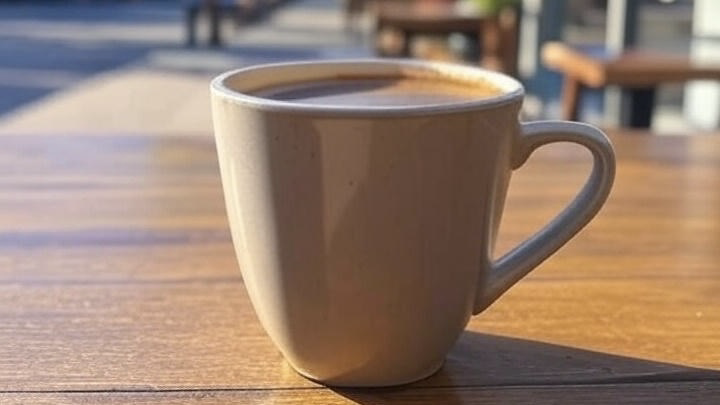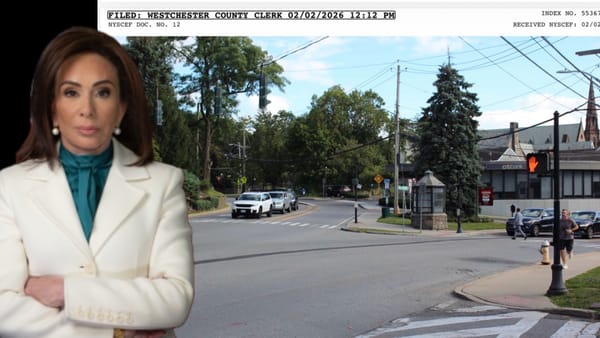The Rise of Boutique Coffee Shops in New Rochelle and Their Role in Downtown Revitalization

NEW ROCHELLE, NY (August 5, 2025) — New Rochelle is experiencing a surge in boutique coffee shops, a trend that signals economic and cultural revitalization in its downtown area. Since 2021, several independent cafes have opened, often in new apartment buildings, enhancing the city’s walkability and vibrant food scene.
These establishments, alongside longstanding diners and national chains like Starbucks, Dunkin’, and McDonald’s, reflect a broader transformation. However, the rise of boutique coffee shops also raises questions about gentrification, affordability, and long-term economic stability. This article examines the growth of these cafes, their perceived role as indicators of progress, and the opportunities and challenges they present for New Rochelle’s development.
Introduction
New Rochelle’s downtown has undergone significant revitalization, marked by the opening of boutique coffee shops since 2021. These establishments, often located in new residential developments, contribute to the city’s evolving identity as a walkable, vibrant destination. This article analyzes the economic, cultural, and social impacts of these cafes, drawing on urban studies and local data to assess their role in urban renewal. It also highlights the enduring presence of traditional diners, which complement the modern coffee scene, and evaluates the broader implications of these trends.
Boutique Coffee Shops in New Rochelle
Since 2021, New Rochelle has welcomed several independent coffee shops, many of which have become integral to the city’s food scene:
• Café Haven at Stella recently replaced Joe Coffee which opened in 2022, marking a new chapter for this location in the Stella building.
• Casaroma Cafe, opened in 2022, emphasizes community with offerings like cinnamon agave lattes and Dominican hot chocolate.
• Harpoon Hannas Coffee Shop serves as a “neighborhood sanctuary,” focusing on specialty teas, coffees, and a cozy atmosphere.
• Other Notable Cafes:, Altamira Coffee Bar, Pop’s Espresso Bar, and R Patisserie Cafe & Tea Boutique, known for its organic offerings, add to the diversity of options. Cafetero Coffee Company continues to serve premium Colombian coffee. Grey’s Donuts operates out of a booth on Anderson Plaza.
• Closed Establishments: The Standard Bean, which opened in May 2021 and Joe Coffee.
National chains such as Starbucks, Dunkin’, Toastique, and McDonald’s also maintain a presence, catering to a broader demographic and complementing the boutique offerings.
Diners: A Cornerstone of New Rochelle’s Culinary Identity
Traditional diners remain a vital part of New Rochelle’s food scene, offering classic American fare and a retro atmosphere:
• New Rochelle Diner, constructed in 2014-15 as showcase by the world famous DeRaffele Manufacturing Company of New Rochelle, offering lunch specials, free Wi-Fi, and outdoor seating.
• Shore Road Diner provides unique dishes like Mexi-American taco breakfasts, blending traditional and innovative flavors.
• Mirage Restaurant & Cafe, formerly Mirage Diner, features an extensive menu with daily specials.
• Rochelle Coffee Shop thrives with its retro diner vibe, serving breakfast and brunch.
These diners complement the modern coffee shops, catering to diverse tastes and reinforcing New Rochelle’s culinary heritage.
Boutique Coffee Shops as Indicators of Progress
The proliferation of boutique coffee shops is often viewed as a sign of economic and cultural progress. Key factors supporting this perception include:
- Economic Indicators:
◦ Investment and Growth: Boutique coffee shops signal entrepreneurial confidence in New Rochelle’s economy, expecting sufficient foot traffic and disposable income to sustain premium-priced businesses.
◦ Job Creation: These cafes create jobs, from baristas to managers, though often at low-to-mid-wage levels.
◦ Attracting Other Businesses: As “third places” outside home and work, coffee shops draw foot traffic, encouraging nearby restaurants, retail, and coworking spaces. A 2019 Brookings Institution study found that areas with new retail and dining options saw property value increases of 5-10% over five years.
2. Cultural and Social Appeal:◦ Community Hubs: Cafes like Casaroma and Harpoon Hannas foster social interaction, remote work, and local events, enhancing neighborhood vibrancy.
◦ Aesthetic and Lifestyle Upgrade: Trendy designs and artisanal products appeal to younger, affluent, or creative demographics, making areas feel “hip” or “up-and-coming.”
◦ Urban Revitalization: In previously neglected areas, coffee shops replace vacant storefronts, signaling renewal, as seen in post-industrial cities like Detroit and Pittsburgh.
3. Demographic Shifts:◦ Attracting Affluent Residents: Boutique cafes cater to higher-income or educated demographics, indicating New Rochelle is drawing residents with disposable income.
◦ Tourism and Visibility: Instagram-worthy cafes boost local tourism, putting New Rochelle “on the map.”
Opportunities and Challenges
While boutique coffee shops signal progress, their impact is not universally positive. A balanced analysis reveals both opportunities and challenges:
Opportunities
• Economic Ripple Effects: Coffee shops stimulate local economies by increasing foot traffic and supporting nearby commerce, as evidenced by the Brookings Institution’s findings.
• Community Building: Cafes hosting events like open mics or art shows foster social cohesion and support local culture.
• Urban Renewal: New coffee shops signal investor confidence, attracting further development to New Rochelle’s downtown.
Challenges
• Gentrification Concerns: A 2021 University of California study found that neighborhoods with new coffee shops saw rent increases of 7-12% within three years, potentially pricing out lower-income residents and leading to displacement or cultural erosion.
• Superficial Progress: Cafes may mask deeper issues, such as insufficient affordable housing or infrastructure investment, catering primarily to affluent demographics.
• Fragility of Small Businesses: The Small Business Administration reports that 60% of small businesses like boutique cafes close within five years, limiting their long-term economic impact. The closure of The Standard Bean exemplifies this risk.
• Homogenization: Similar aesthetics (e.g., exposed brick, minimalist decor) may create a “generic” urban culture, diminishing New Rochelle’s distinctiveness.
Contextual Factors
The impact of boutique coffee shops depends on several factors:
• Location: In struggling neighborhoods, cafes signal hope and investment. In already gentrified areas, they may exacerbate inequality.
• Community Engagement: Shops that prioritize local sourcing, hiring, or community events, like Casaroma Cafe, are more likely to be seen as positive contributors.
• Economic Diversity: A mix of businesses, including affordable options alongside cafes, reduces perceptions of elitism.
Conclusion
The rise of boutique coffee shops in New Rochelle reflects the city’s ongoing downtown revitalization, signaling economic vitality, cultural vibrancy, and urban renewal. Establishments like Café Haven at Stella, Casaroma Cafe, and Harpoon Hannas, alongside traditional diners and national chains, enhance the city’s appeal as a walkable, vibrant destination. However, challenges such as gentrification, high business failure rates, and potential cultural homogenization underscore the need for inclusive development policies.
Boutique coffee shops signal economic vitality and community vibrancy, but they can also spark concerns about affordability. The real impact depends on whether these changes benefit the broader community or just a narrow, affluent group.
To ensure long-term benefits, New Rochelle should prioritize policies that balance economic growth with affordability and community engagement. Further research, including local data on rent increases, demographic shifts, and resident sentiment could provide deeper insights into the impact of these trends.
Recommendations
- Support Local Businesses: Encourage policies that provide financial incentives or support for small businesses to reduce closure rates.
- Promote Inclusive Development: Ensure new developments include affordable housing and businesses catering to diverse income levels.
- Enhance Community Engagement: Encourage cafes to host events and source locally to foster stronger community ties.
- Monitor Gentrification: Track rent increases and demographic shifts to mitigate displacement risks.
Below is a list of every coffee shop, diner or national chain mentioned in the article. Subscribers can add a comment to add any locations not on the list.
Boutique Coffee Shops
- Café Haven at Stella - 25 Lecount Place
- Casaroma Cafe - 391 Huguenot Street
- Harpoon Hannas Coffee Shop - 211 Main Division Street
- Grey’s Donuts - 20 Anderson Street
- Altamira Cafe & Bar - 245 Main Street
- Pop’s Espresso Bar - 7B Huguenot Street
- R Patisserie Cafe & Tea Boutique - 302 Huguenot Street
- Cafetero Coffee Company - 111 Centre Avenue
- The Standard Bean (Closed) - 48 Lecount Place
- Joe Coffee (Closed) - 25 Lecount Place (replaced by Café Haven at Stella)
National Chains
- Starbucks - 1278 North Avenue, 726 North Avenue, 80 Huguenot Street, 2425 Palmer Avenue (Stop & Shop), 715 North Avenue.
- Dunkin’ - 1333 North Avenue, 646 North Avenue, 799 Main Street, 85 North Avenue, 96 East Main Street.
- McDonald’s - 270 Main Street, 720 North Avenue.
- Toastique - 604 North Avenue
Diners
- New Rochelle Diner - 850 Main Street
- Shore Road Diner - 8 Shore Road
- Mirage Restaurant & Cafe (formerly Mirage Diner) - 690 North Avenue
- Rochelle Coffee Shop - 8 Quaker Ridge Road
This article was drafted with the aid of Grok, an AI tool by xAI, under the direction and editing of Robert Cox to ensure accuracy and adherence to journalistic standards.





